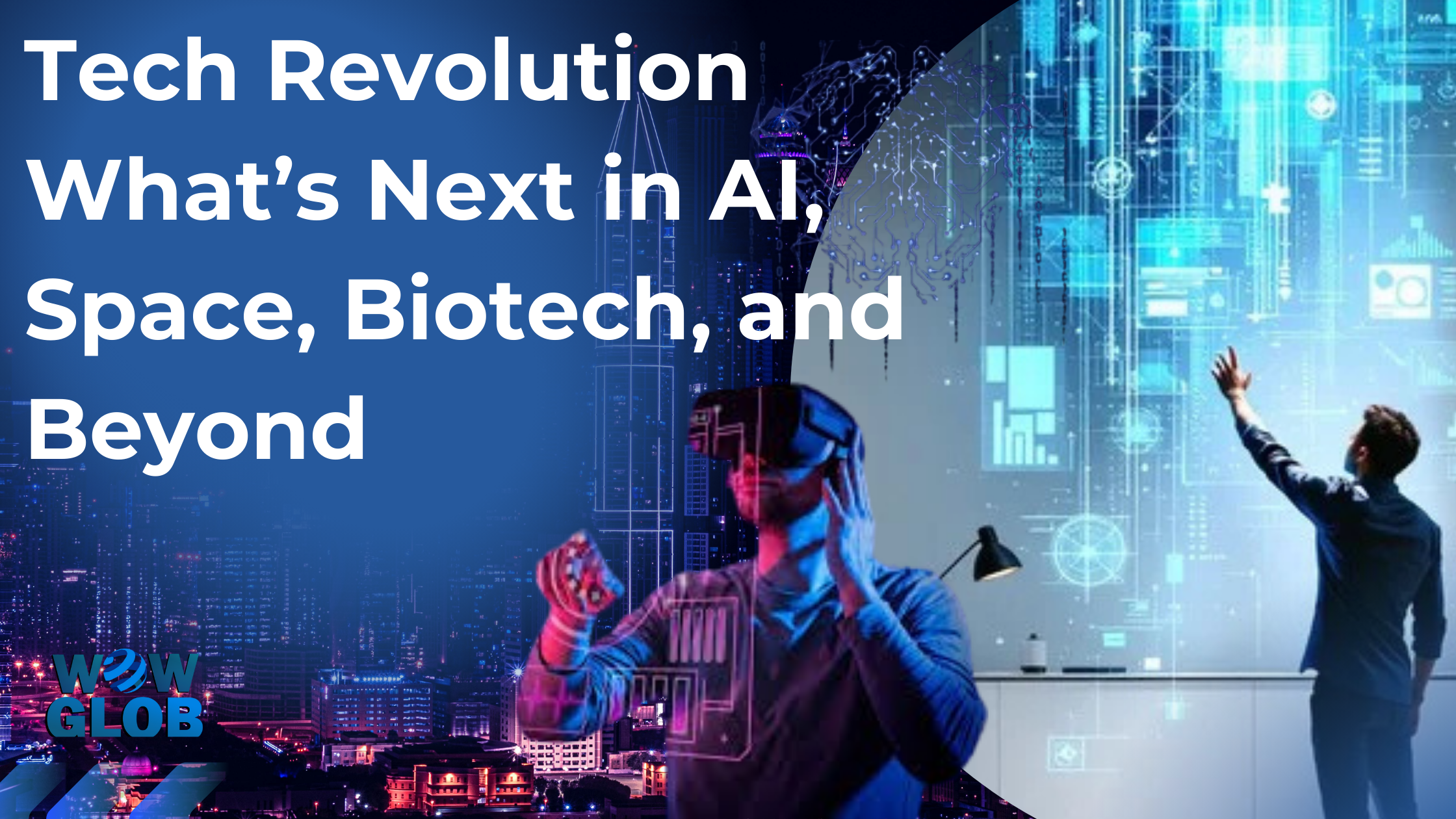The Future is Now: Emerging Technologies Shaping Tomorrow’s World
In the ever-evolving landscape of technology, the pace of innovation is accelerating at an unprecedented rate. From artificial intelligence to quantum computing, the technologies that once seemed like science fiction are now becoming reality. These advancements are not just reshaping industries—they are redefining how we live, work, and interact with the world. Let’s take a closer look at some of the most groundbreaking technologies that are poised to transform our future.
1. Artificial Intelligence: Beyond Automation
Artificial Intelligence (AI) has moved far beyond simple automation. Today, AI is capable of creating art, composing music, and even writing code. Generative AI models like ChatGPT and DALL-E are revolutionizing creative industries, enabling anyone to generate high-quality content with minimal effort. But the impact of AI goes deeper. In healthcare, AI is being used to diagnose diseases, predict patient outcomes, and accelerate drug discovery. The rise of explainable AI (XAI) is also addressing ethical concerns, ensuring that AI systems are transparent and accountable.
The question is no longer whether AI will change the world—it’s how we will harness its power responsibly.
2. Quantum Computing: The Next Frontier
Quantum computing is no longer a distant dream. Companies like IBM, Google, and startups like Rigetti are making significant strides in developing quantum processors that can solve problems beyond the reach of classical computers. From optimizing supply chains to simulating molecular structures for drug development, quantum computing promises to tackle some of humanity’s most complex challenges.
But with great power comes great responsibility. Quantum computing also poses a threat to current encryption methods, prompting a race to develop quantum-resistant cryptography. The quantum revolution is just beginning, and its implications are profound.
3. The Metaverse: A New Digital Reality
The concept of the metaverse—a virtual world where people can interact, work, and play—has captured the imagination of tech giants like Meta, Microsoft, and NVIDIA. Powered by advancements in augmented reality (AR) and virtual reality (VR), the metaverse is set to redefine how we experience the digital realm. Imagine attending a concert in a virtual arena, collaborating with colleagues in a 3D workspace, or exploring a digital replica of ancient Rome—all from the comfort of your home.
While the metaverse is still in its infancy, its potential to transform entertainment, education, and commerce is undeniable. However, questions about privacy, security, and digital addiction must be addressed as this new frontier unfolds.
4. Biotechnology: Engineering Life
Biotechnology is pushing the boundaries of what’s possible in medicine, agriculture, and environmental sustainability. CRISPR gene-editing technology is enabling scientists to modify DNA with unprecedented precision, opening the door to curing genetic diseases and creating drought-resistant crops. Synthetic biology, which involves designing and constructing new biological systems, is being used to produce sustainable materials, clean up pollution, and even create lab-grown meat.
These advancements are not without controversy. Ethical debates about genetic modification and the potential for unintended consequences highlight the need for careful regulation and public dialogue.
5. Energy Revolution: Powering a Sustainable Future
The global push for sustainability is driving innovation in energy technology. Solid-state batteries, which promise higher energy density and faster charging times, could revolutionize electric vehicles and renewable energy storage. Meanwhile, advancements in solar and wind energy are making these sources more efficient and affordable.
Carbon capture and storage (CCS) technologies are also gaining traction as a way to mitigate climate change by capturing CO2 emissions from industrial processes. These innovations are critical as the world transitions to a low-carbon economy.
6. Space Exploration: The Final Frontier
Space is no longer the exclusive domain of governments. Private companies like SpaceX, Blue Origin, and Rocket Lab are leading the charge in commercial space travel and satellite deployment. Projects like SpaceX’s Starship aim to make interplanetary travel a reality, while satellite constellations like Starlink are bringing high-speed internet to remote areas.
The commercialization of space is opening up new opportunities for scientific research, resource extraction, and even tourism. As we venture further into the cosmos, the possibilities are as vast as space itself.
7. Robotics: The Rise of Intelligent Machines
Robotics is advancing at a rapid pace, with applications ranging from autonomous vehicles to service robots. Self-driving cars are becoming more sophisticated, with companies like Tesla and Waymo leading the way. In healthcare, robots are assisting with surgeries and providing companionship for the elderly. In warehouses, autonomous robots are streamlining logistics and improving efficiency.
As robots become more integrated into our daily lives, questions about job displacement and ethical use will need to be addressed. But one thing is clear: robotics is here to stay.
8. Blockchain: Beyond Cryptocurrency
Blockchain technology is best known for powering cryptocurrencies like Bitcoin and Ethereum, but its potential extends far beyond finance. Decentralized finance (DeFi) is disrupting traditional banking by enabling peer-to-peer transactions without intermediaries. Non-fungible tokens (NFTs) are revolutionizing digital ownership, allowing creators to monetize their work in new ways.
Blockchain is also being used to enhance supply chain transparency, secure voting systems, and protect intellectual property. As the technology matures, its applications will only continue to grow.
9. Edge Computing: The Power of Proximity
As the Internet of Things (IoT) expands, the need for real-time data processing is driving the adoption of edge computing. By processing data closer to its source, edge computing reduces latency and bandwidth use, making it ideal for applications like autonomous vehicles, smart cities, and industrial automation.
This shift toward decentralized computing is transforming how we handle data, enabling faster and more efficient decision-making.
10. Cybersecurity: Protecting the Digital World
As technology advances, so do the threats. Cybersecurity is more important than ever, with AI-driven solutions and zero-trust architectures leading the charge. These technologies are helping organizations detect and respond to threats in real-time, safeguarding sensitive data and critical infrastructure.
In an increasingly connected world, cybersecurity is not just a technical challenge—it’s a societal imperative.
Conclusion: Embracing the Future
The technologies of tomorrow are already here, and they are reshaping our world in ways we are only beginning to understand. From AI and quantum computing to biotechnology and the metaverse, these innovations hold the promise of solving some of humanity’s greatest challenges. But with great power comes great responsibility. As we embrace these advancements, we must also address the ethical, social, and environmental implications they bring.
The future is not something we wait for—it’s something we create. And with the right balance of innovation and responsibility, we can build a world that is not only technologically advanced but also equitable, sustainable, and inclusive. The future is now, and it’s ours to shape.



